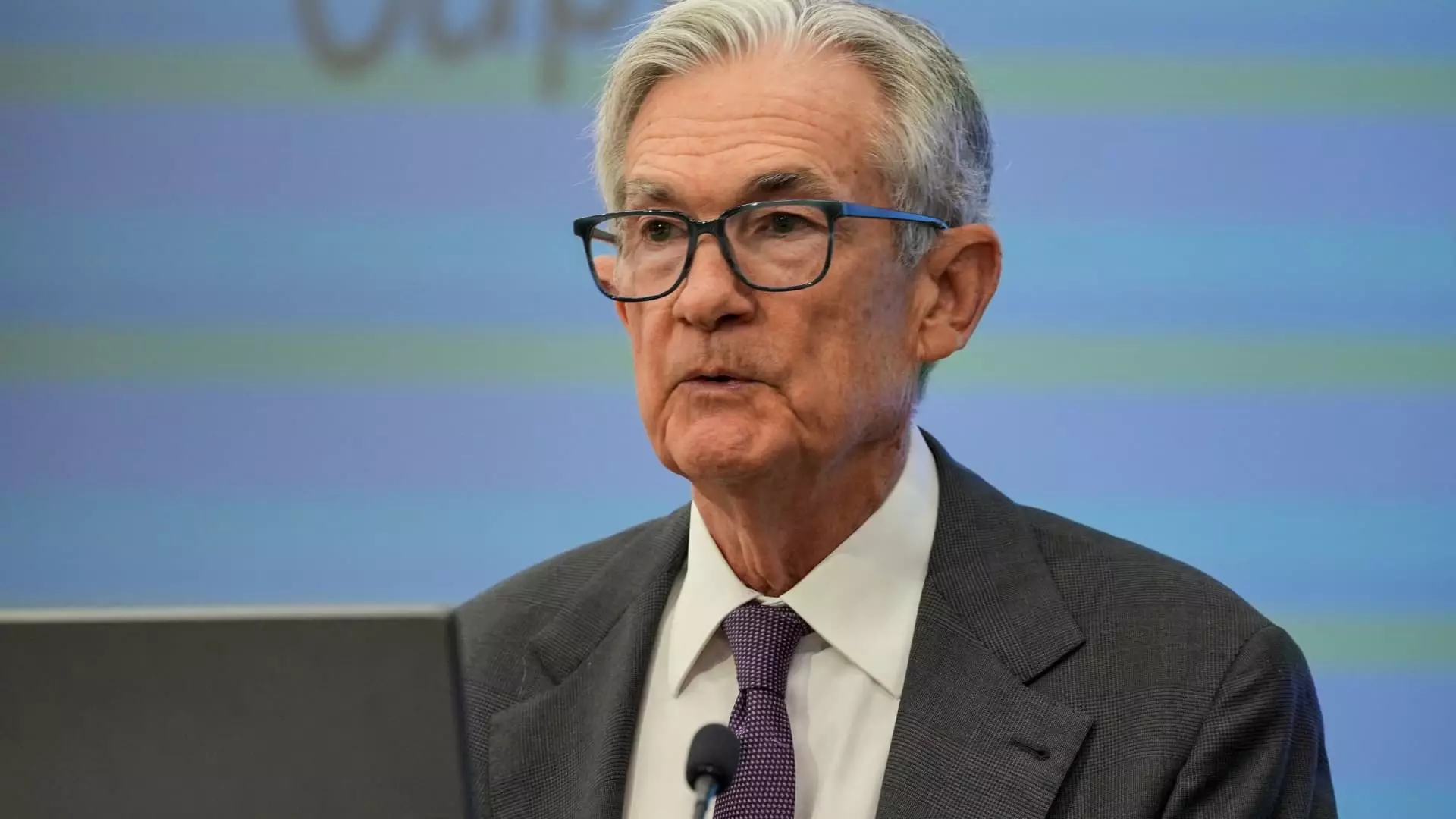As Jerome Powell prepares to deliver what likely will be his final keynote at the Jackson Hole economic symposium, the stakes could not be higher. The Federal Reserve chair finds himself at a crossroads, wrestling not only with complex economic realities but also with mounting political interference. This confluence of economic and political turbulence threatens the independence of a historically revered institution while putting the future of monetary policy into question.
Powell’s tenure has been marked by an exceptional balancing act. On one hand, he has skillfully projected calm and stability, emphasizing the importance of data-driven decision-making amid a rollercoaster economy. But beneath this composed exterior lies the visceral pressure of a polarized political climate, with figures in the Trump administration relentlessly attacking the Fed’s credibility and autonomy. With politicians calling for rate cuts or questioning the central bank’s legitimacy, Powell’s position has become more perilous, testing the very foundations of central banking independence.
The political landscape adds an uncomfortable layer of uncertainty. While the essence of the Fed’s policy actions remains rooted in technical analysis, the temptation for political leaders to manipulate economic narratives or influence decisions is stronger than ever. Powell has repeatedly defended the Fed’s independence, resisting calls to lower rates for short-term political gains. Yet, the administration’s vocal criticism, especially from President Trump, continues to cast a shadow over the institution’s credibility, making Powell’s role much more challenging than it appears on the surface.
The danger lies not only in politicization but also in the broader erosion of trust. When the public perceives central bank decisions as politically motivated rather than driven by economic realities, confidence wavers. Powell’s ability to shield the Fed from this influence is crucial, but the question remains—how much longer can he maintain this delicate facade? His upcoming speech may serve as a crucial statement of independence, yet it risks sounding preachy or defensive amid relentless accusations.
The Policy Tightrope: Inflation, Growth, and the Fear of Overreach
Beyond the political chaos, the core of Powell’s challenge is pragmatic and steeped in economic uncertainty. The recent softening in job growth, coupled with inflationary pressures, has left policymakers divided. Some fear that prematurely cutting rates could ignite inflation, while others argue that remaining on hold could stifle fragile growth. The upcoming Jackson Hole address is expected to outline Powell’s thinking on this delicate balancing act.
For years, the Fed has been operating under a framework of flexible average inflation targeting—a strategy designed to allow inflation to run temporarily above targets to make up for previous shortfalls. This approach, adopted amidst the tumult of the COVID-19 pandemic and social protests of 2020, was meant to give the Fed greater leeway but has arguably contributed to an inflation overshoot. Now, policymakers are contemplating whether to revert to a more preemptive stance, tightening the policy leash before inflation spirals further out of control.
Market expectations are nuanced. Some analysts believe Powell will signal support for a September interest rate cut, especially given the recent slowdown in employment growth. Others, however, caution that the Fed’s internal debates remain unresolved, with regional presidents and voting members voicing skepticism. The central question revolves around whether the Fed should act swiftly or remain cautious, weighing the risk of fueling inflation against the danger of choking economic recovery.
An important aspect of Powell’s upcoming speech will be how he frames the long-term policy outlook. Will he advocate for abandoning the “flexible” inflation target that allowed for overshoot and embrace a more disciplined stance? The answer to this will have far-reaching implications. Restoring the pre-pandemic inflation paradigm could be viewed as necessary for anchoring expectations, but it risks undermining the central bank’s credibility as a flexible crisis manager.
The Power of Framing: Setting the Tone for the Future of Monetary Policy
The tone Powell adopts in Jackson Hole will likely shape market sentiment for months to come. If he emphasizes caution, transparency, and a focus on durable growth, it could restore some confidence in the Fed’s independence. Conversely, if he appears to capitulate under pressure, markets may interpret this as vulnerability, leading to increased volatility.
A subtle but critical issue is how Powell will address the broader inflation debate. After decades of stable or declining inflation, the recent surge has raised questions about the sustainability of the Fed’s policies. The recent change in the inflation framework, meant to give the central bank greater flexibility, now appears to be under reconsideration. Powell’s stance on reemphasizing preemptive measures and defensive tactics will be pivotal in reassuring markets that the Fed remains committed to controlling inflation without sacrificing employment and growth.
The political debates surrounding the Fed’s longer-term goals reflect wider tensions in American society about economic fairness and the role of government institutions. The irony is that while the Fed’s independence is crucial for sound policy, it is increasingly vulnerable to the destructive forces of political theater. Powell’s challenge is not just technical—it is symbolic. He must demonstrate that an autonomous, data-driven central bank remains the best guardian of economic stability in an era of rampant political meddling.
In this complex context, Powell’s speech could serve as a rallying cry for the importance of preserving institutional integrity against populist encroachments. Or it could be seen as a capitulation—a sign that the central bank’s independence is slipping away. Given the current climate, any message of cautious resilience rather than aggressive advocacy for independence will resonate deeply. The stakes transcend monetary policy—they touch upon the core of democratic trust in institutions meant to insulate economic decision-making from partisan influence.

